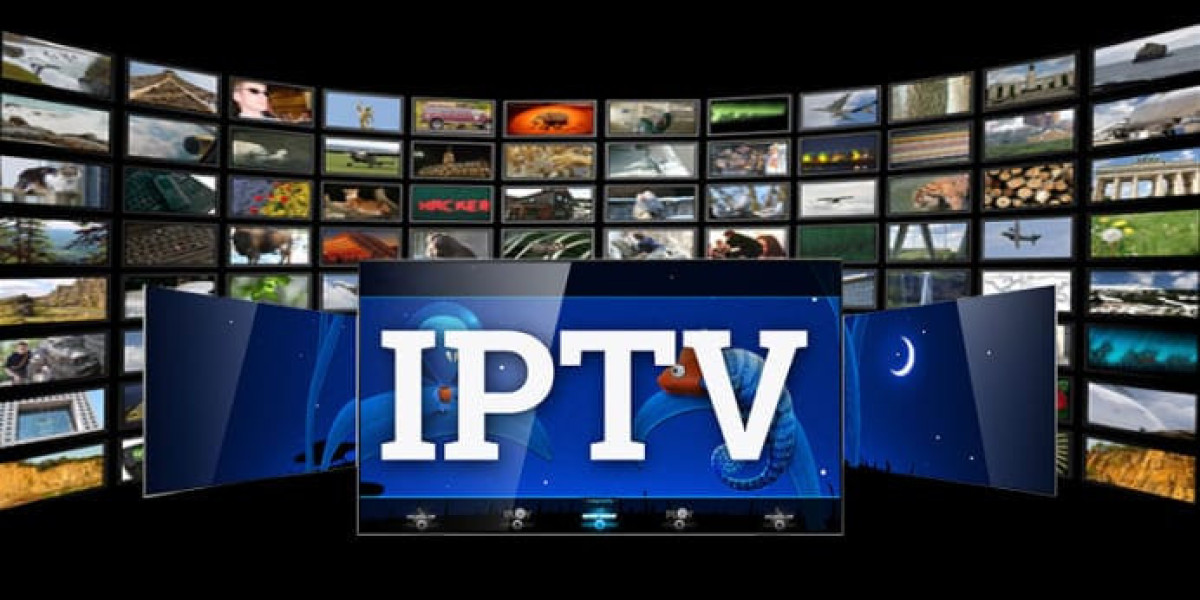Television in the UK is evolving rapidly. As traditional satellite and cable subscriptions decline, British IPTV (Internet Protocol Television) has become the go-to option for millions of households looking for flexible, affordable, and high-quality entertainment.
But with this rise in popularity comes confusion — is IPTV legal in the UK? Why do some services cost £10 a month while others are free or promise “thousands of channels” for life?
This comprehensive 2025 guide breaks down what makes IPTV legal or illegal, how UK law treats it, and what viewers need to know to stay safe and compliant.
What Is IPTV?
IPTV (Internet Protocol Television) is a system that delivers television and video content through the internet rather than via traditional terrestrial, satellite, or cable formats.
It works by streaming data over your broadband connection, allowing you to watch live TV, on-demand shows, and catch-up programmes on a range of devices — from smart TVs and laptops to tablets and smartphones.
Common Types of IPTV:
Live IPTV: Streams live channels like news, sports, and entertainment.
Time-Shifted IPTV: Lets you rewatch shows aired earlier (like BBC iPlayer’s catch-up feature).
Video-on-Demand (VoD): Allows users to select and watch content anytime, similar to Netflix or Prime Video.
The technology itself is completely legal. The key issue lies in who provides the content and whether they have broadcasting rights.
Is IPTV Legal in the UK?
The short answer: Yes — IPTV is legal in the UK, as long as the service provider has the proper licences to stream the content.
✅ Legal IPTV Services
Legal IPTV providers have broadcasting and distribution rights for the channels, programmes, and films they offer. They comply with UK copyright laws, pay licensing fees, and are regulated by Ofcom or other relevant authorities.
Examples include:
BBC iPlayer
ITVX
NOW TV / Sky Stream
BT TV
Virgin Media TV Go
Channel 4 (All4) and My5
These services may use IPTV technology to deliver content, but they do so under the law — ensuring both creators and viewers are protected.
When IPTV Becomes Illegal
IPTV becomes illegal when a provider streams or resells TV channels, movies, or sports without permission from the content owners. These unlicensed services often promote themselves with offers like:
“Over 10,000 live channels for £20 a year”
“Free Sky Sports and Netflix in one app”
“One-time payment for lifetime access”
Such offers might seem appealing, but they’re unlawful because the providers don’t have permission to distribute copyrighted material.
❌ Illegal IPTV Examples
Unofficial apps that require you to sideload them on a Fire Stick or Android box.
Websites offering free or paid access to premium sports events without licensing.
IPTV “reseller” panels selling pirated streams or cloned channel lists.
Even if you’re just a viewer, using these illegal IPTV services can put you at legal and financial risk.
The Legal Consequences of Using Illegal IPTV
UK authorities have significantly tightened their stance on IPTV piracy. Under the Copyright, Designs and Patents Act 1988, streaming or distributing copyrighted content without authorisation is a criminal offence.
Potential Penalties Include:
Fines of up to £50,000 or more.
Confiscation of devices used for illegal streaming.
Prosecution and possible imprisonment for resellers or repeat offenders.
ISP account suspension or permanent bans from internet providers.
In 2024, several UK IPTV sellers and users faced prosecution after distributing or accessing unlicensed sports content online. This crackdown continues into 2025 as authorities target illegal IPTV networks at both the supply and user levels.
Risks of Using Illegal IPTV
Aside from legal dangers, unlicensed IPTV services pose several cybersecurity and privacy risks:
1. Malware and Viruses
Illegal IPTV apps and websites are not vetted by trusted platforms. They may install spyware, ransomware, or other malware onto your devices.
2. Data Theft
Payment details and personal information can be stolen or sold by rogue providers operating outside UK data laws (like the GDPR).
3. Poor Quality Streams
Pirated IPTV streams often suffer from buffering, poor resolution, and sudden shutdowns — especially during major sporting events.
4. Service Instability
Illegal IPTV servers are frequently taken offline by authorities, leaving users without access and no refunds.
5. Ethical and Reputational Risks
Using pirated content undermines the creative industry, depriving broadcasters and artists of revenue. For businesses, being caught streaming unlicensed content can harm brand credibility.
How to Tell if an IPTV Service Is Legal
Before subscribing to any IPTV provider, always check the following:
Official Licensing Information: Legitimate providers will display clear licensing details and terms of service.
Business Transparency: Look for a registered business address and customer support contact.
App Store Availability: Legal IPTV services are available via Apple, Google, Amazon, or official broadcaster platforms.
Secure Payments: Legal services accept credit/debit cards or verified online payments — not cryptocurrency or untraceable transfers.
Realistic Pricing: If it seems too good to be true (like £15/year for Sky Sports and Netflix), it’s almost certainly illegal.
Reviews and Media Mentions: Reputable IPTV services are covered by trusted UK media and reviewed by technology experts.
The Role of Ofcom and UK Authorities
The UK’s broadcasting regulator, Ofcom, plays a central role in overseeing IPTV compliance. It ensures that:
IPTV providers adhere to UK broadcasting standards.
Viewers are protected from illegal and harmful content.
Networks and ISPs cooperate in blocking unlicensed IPTV sites.
Meanwhile, enforcement bodies such as the Police Intellectual Property Crime Unit (PIPCU) and FACT (Federation Against Copyright Theft) actively monitor illegal IPTV distributors and prosecute offenders.
In 2025, the UK government continues to collaborate with European and international partners to dismantle large-scale piracy operations.
The Benefits of Using Legal IPTV
Opting for legal IPTV isn’t just about staying within the law — it’s also about quality, reliability, and peace of mind.
• Reliable Streaming
Licensed IPTV platforms deliver consistent HD or 4K streams without buffering or shutdowns.
• Secure Payments
Your personal and financial data is protected through encrypted, GDPR-compliant systems.
• Access to Premium Content
Legal IPTV services give you official access to the latest films, live sports, and series, often with catch-up and recording features.
• Customer Support
You get access to technical help, refunds, and transparent service guarantees.
• Ethical Viewing
Your subscription supports content creators, actors, producers, and broadcasters who make the entertainment you love.
The Future of IPTV in the UK
As broadband speeds increase and 5G becomes standard, IPTV will soon dominate the UK television market. By 2030, experts predict that over 90% of TV content in Britain will be delivered via IP-based platforms.
Future developments to watch:
Ad-supported free streaming (FAST) channels becoming more mainstream.
AI-powered personalisation improving content recommendations.
Enhanced anti-piracy technology detecting illegal streams in real time.
Cross-platform integration, combining live TV, gaming, and smart-home devices.
Legal IPTV is here to stay — evolving into a more intelligent, secure, and user-friendly medium that defines the future of entertainment.
Conclusion
So, is IPTV legal in the UK?
Yes — as long as you’re using a licensed, regulated provider. The technology itself is perfectly lawful and represents the future of television in Britain.







